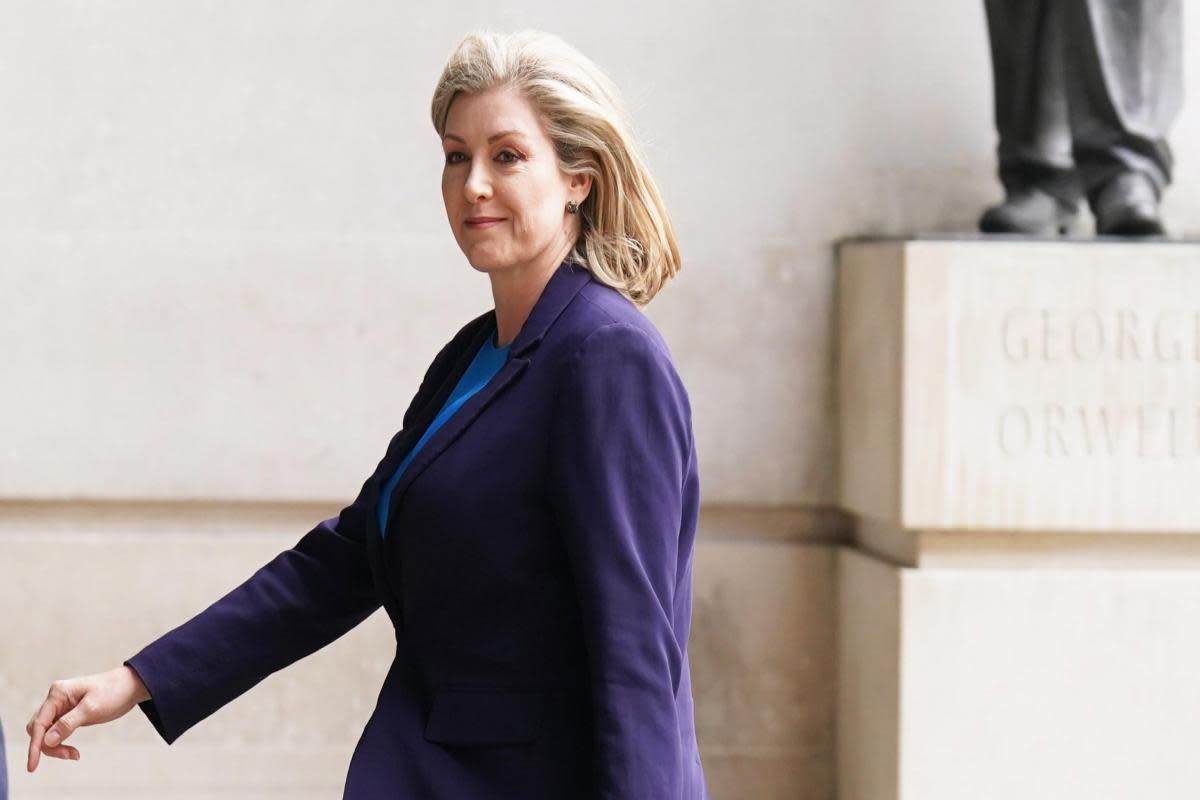Commons leader Penny Mordaunt loses Portsmouth North seat to Labour

Leader of the House of Commons Penny Mordaunt has lost her Portsmouth North seat to Labour.
As the exit poll was published at 10pm, the seat was described as "too close to call" with the leading Tory figure given just a 25% chance of defending her seat.
Penny Mordaunt collected 13,715 votes, falling short of her Labour counterpart Amanda Martin who collected 14,495 votes and was named the new MP for Portsmouth North.
Ms Mordaunt – a former magician’s assistant – went viral for carrying two heavy swords at the King’s coronation, dressed in a custom-made teal outfit with a matching cape and headband with gold feather embroidery.
As Lord President of the Council, she was responsible for bearing the Sword of State and presenting the Jewelled Sword of Offering to Charles – the first time the duty had been carried out by a woman.
She was hailed as stealing the show and later disclosed she did press ups in preparation and practised with weighted replicas.
Exit Poll predicts Labour landslide
Sir Keir Starmer will be the next Prime Minister according to the exit poll, which predicts Labour will win 410 seats at the election.
A party needs 326 seats to hold a majority in Parliament.
The second largest party is expected to be the Conservative with 131 seats, while the Lib Dems will be the third largest party at Westminster with 61 seats.
Reform are expected to pick up 13 seats according to the exit poll, while the SNP in Scotland are predicted to return 10 MPs to Westminster.
What is an Exit Poll?
The exit poll is a way of predicting what may happen in a general election, revealed after voting has concluded but before results are counted.
Exit polls take place at around 144 polling stations across the UK and the information then is used to predict the result of the election.
It involves asking tens of thousands to fill in a private ballot after they voted to get an indication of how they voted in the actual election.
Participating polling stations are usually chosen because they are considered to be demographically representative of the UK as a whole, with a mixture of rural and urban seats selected, and a number of marginal seats also chosen.

 Yahoo News
Yahoo News 
